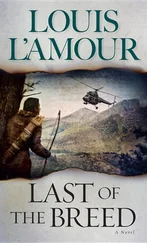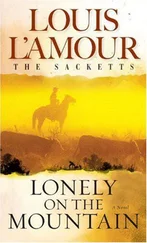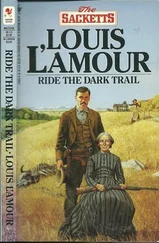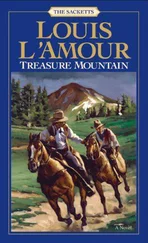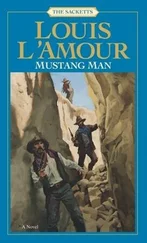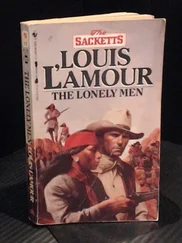Two years before a man had been severely mauled by a bear he had come upon in the night, and there was a story persistent in the neighborhood that a child had been carried off by a panther. Rob was older than Jean, but shy due to his small size. As other boys of his age grew bigger and stronger he turned more and more to books for companionship, yet his alert mind and imagination were fascinated by a boy several years younger than himself who came and went in the Great Swamp without fear. From time to time he saw Jean LaBarge come to town with his sacks of herbs and finally he began waiting at the store to watch Mister Dean sort them carefully into piles. From listening he learned the piles were of many kinds, but the largest were usually bloodroot, wild ginger, senega snakeroot and sassafras. The friendship between the boys began with a question. One afternoon old Mister Dean was totaling the amount owed to Jean. Rob watched him as he bent over the figures, peering through his square-cut steel-rimmed glasses, his great shock of iron-gray hair making his head seem much too heavy for his scrawny neck. Catching Jean's eyes, Rob asked, "Where do you get all those?"
Naturally shy, Jean recognized the even greater shyness of the smaller boy.
"Over in the swamp," he replied.
"Aren't you afraid?"
Jean considered the question with care. He was, he realized, afraid sometimes. But it was not when he was in the swamp. It was only at night, those nights when he awakened in the silent cabin and knew he was alone. Sometimes then he would lie awake straining his eyes into the darkness to see the fearsome creatures his imagination told him would be lurking there, in the corners of the room or just outside the walls. But he knew he must never speak of that fear because once the well-meaning people of the village knew he was a boy alone they would take him away from the cabin and the swamp and find a home for him, or send him to a workhouse, and he wanted no home but the one he now had. At least until he had a rifle. Once he had a rifle he would go west and become a mountain man like his father, and perhaps in some trappers' rendezvous in the mountains he might meet him, a big, powerful man who knew Kit Carson and lived among the Indians. But was he afraid of the swamp? "Not very," he said. "Folks say it's haunted."
"I never saw any haunts. It's wild, though, and a body better know where he's stepping or he can sink clean out of sight."
"How do you know which plants to pick?"
"My mother taught me." He knew what they said in the village about his mother being a gypsy. "She grew up in a house near a field where gypsies used to camp." Dean counted out a few coins, peering at Jim over his glasses when he had completed the payment. "I can use more of that sassafras, son, and when berry time comes around I can use all the blackberries and huckleberries you can gather. Don't know where you find 'em. Biggest I ever did see." Jean remembered those big, juicy berries. They grew in the thickest and most dangerous part of the swamp. Leaves fell there and rotted away in the dampness and upon their moldering remains grew the bushes with the fattest, sweetest berries. He had thought about that a good deal, and the place frightened him, but fascinated him also.
"Yes, sir."
"Ain't seen that uncle of yours," Dean commented, "the one who came here when your ma died."
"He goes to Selinsgrove," Jean told him. "Or to Sunbury." The question had been more in the nature of a comment, merely making conversation, and Dean turned to greet another customer, adding, "Don't you forget that sassafras."
Jean stood where he was, his fingers on the edge of the counter, soaking up the rich smells of the old store. There was the fragrance of tobacco, licorice, and dry goods, mingled with the smell of new harness leather, and all the aromas of the old-fashioned shop. Rob Walker waited until Jean started for the door. "That ol' swamp," he said, when they were outside, "I hear it's a mighty gloomy place."
"I like it."
"I'd think you'd be scared, out there alone."
"Nothin' to be scared of ... not if you know where to walk." Jean dug into his pocket for the rattles clipped from a snake he had killed. "Got to watch for rattlers, though. There's big ones in there."
"They say there's a new rattle for every year a snake lives." "Ain't so," Jean said. "There's a new rattle or button every time he sheds his skin, and they do it two, sometimes three times a year." "Would you take me sometime?"
"You'd be scared."
"I would not. I've almost gone in alone--lots of times."
"All right. You can come now if you want."
That was how it had begun, nearly three years before their planned meeting at the Honey Tree. United in their loneliness, the boys had discovered they shared a dream, the dream to go west, far across the plains where the buffalo were, far away to the land of the Sioux and the Blackfoot, and there to be mountain men. Around the village, wherever men gathered to talk, at the livery stable, the mill or the tavern or blacksmith shop, men talked of the mountains and dreamed aloud to each other, those men who often wish and never will, men who bound to business, job, or family, dream great dreams of the far-off lands and the wonderful adventures they may someday have. And those other men and boys without ties, who will never take the lone trail because they want but they will not do. Perhaps because subconsciously they know that every dream has a price, and the price for the wandering life is hunger, loneliness and danger, the blistering thirst of deserts and the icy crash of waves, the tearing winds and driving sleet far from hearthside and the warm arms of loved ones. Yet for Jean dreams would never be enough. The swamp became the training ground for that great day when he would be "big" and could go away. Yet in the secret places of his own mind Jean knew he would not wait for the remote time when he was big enough, a man grown. He would wait not longer than it required to save money for a good rifle, not the cumbersome old gun the cabin afforded ... and the money was almost half saved.
It had been midafternoon when he found the track of the stranger, and Rob would have reached the Honey Tree. If so, he would be waiting there when the stranger arrived, as the man had chosen a route that could not miss the clearing around the tree. Rob would be there and he would see the stranger and be seen by him. Jean's trap line was long and Rob had agreed to work half of it so they could hurry back to the village to listen to Captain Hutchins, who was in the village for a last visit before going across the Great Plains to the lands on the Pacific. He would be in the tavern that night talking of the fur trade and of his plans. Both boys knew about Captain Hutchins. He had made a fortune manufacturing shoes for the Army, as well as in the shipping business, and he was taking his capital west.
Jean had worked his trap line swiftly, finding little. It was time he moved his traps deeper into the swamp. Maybe he would move them over near the stone house; it had been long since he trapped that area.
Nobody else seemed to know about the house. It was very old, built of stones rolled down from the ridge behind it, and it stood hidden in a grove of hemlock, giant trees that kept the house invisible until one was almost at the door. Yet despite its seeming remoteness, Jean knew there was a place where Mill Creek Road bent within a mile of it. Of late he had not been so sure that he was the only one who knew of the house, although whoever did know of it was not anyone from the country around. Once he had found the ashes of a fire that he was sure had not been there when he visited the house before ... that had been the morning after they found Aaron Colby's body on Mill Creek Road. Jean descended into a hollow and crossed the creek on a fallen log, working his way up the slope through a thick stand of trees. When he reached a low hummock of firm ground he followed along its ridge, almost running, scrambling through the brush, hurrying to meet Rob. The Honey Tree was only a little farther on. Quite suddenly he saw the footprints again. The man had taken the same route Jean had chosen, but when in sight of the Honey Tree he had veered sharply away and leaped back across the tiny stream: Jean could see where his feet had landed after the jump, and where he had slipped in climbing the wet bank. Looking through the trees from where the stranger had suddenly turned, Jean saw Rob sitting on a deadfall waiting for him.
Читать дальше

